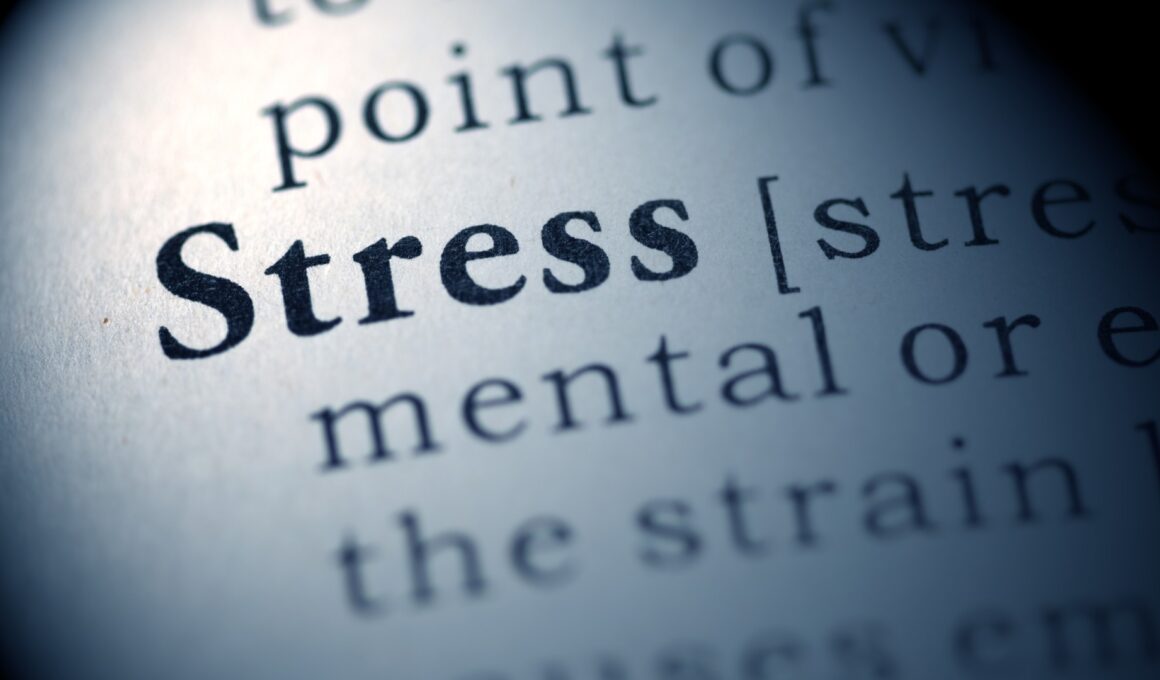Most of us would probably say that we know what stress is. Unfortunately we would often probably claim to be intimately familiar with the concept, especially if we hold down a 9-5 job that has us constantly under pressure, or if we have a boss that we perhaps don’t always get on with like a house on fire.
But how do you actually define stress? Are there different kinds? And what causes it? In this definition of stress we will attempt to look into the concept in a bit more detail to unravel what exactly it means and what’s going on inside our bodies and minds when we experience it.
Defining Stress
According to Wikipedia, the definition of stress is:
“An organism’s response to a stressor such as an environmental condition or a stimulus. Stress is a body’s method of reacting to a challenge.”
Generally then, stress is what happens when the body or mind is under a perceived threat. In this way it is closely related to the ‘fight or flight response’ and actually is the result of the same biological processes.
What Is Stress?
Essentially, when you perceive yourself to be in danger, you will find yourself responding by triggering the release of various different hormones and neurotransmitters that will impact your body in various ways. This is not a conscious thing or something that you purposefully decide to do but is instead an automatic response of your body to that ‘stressor’ (the stressor being the thing that caused the stress).
Specifically, when you become stressed your body will produce norepinephrine, adrenaline and cortisol which are collectively referred to as the stress hormones. One definition of stress could be to say the ‘presence of these three chemicals’.
These hormones then cause the muscles to contract, they make you more alert and focused (which we experience as anxiety), they increase your heart rate and blood pressure and they direct blood away from the immune system and digestive system and to the muscles and the brain.
All this together puts us in the fight or flight mode which, as the name suggests, gets us ready for combat or escape. In other words, stress is an evolutionary response designed to increase our chances of survival in a dangerous situation. It gets us ‘pumped’ and amped up and ready to take on whatever challenges might be thrown at us.
Interestingly a few other things can also trigger similar responses. Being very cold for instance can have a similar effect as can hearing a loud noise – the reason being that in both circumstances the body perceives itself as being under threat.
What Is Chronic Stress?
Perhaps you think of stress more as what happens when you have a deadline to meet, or when you know that your boss is coming around to look at your work. This is how many of us think of stress today and the simple reason for this is that we don’t get into as many physically dangerous situations as we would have done in the wild.
This type of stress that seems ‘ongoing’ and is caused by our occupation or our finances, is what gets referred to as ‘chronic stress’. This is stress where the stressor is abstract or long lasting and won’t go away, at which point the stress response becomes maladaptive. It is neither helpful nor practical to have your blood pressure elevated and muscles tense for days on end because you have a poor bank balance. Likewise, it’s not very good for your immune system to be suppressed because you’re having marital difficulties. This is the point at which stress becomes a bad thing and when you risk become ill as a result of it.
Chronic stress occurs because you are in the ‘amped up’ state for too long and this then begins to take its toll on the body over time.
Eustress
Another type of stress also exists though and this is called ‘eustress’. The definition of stress in this case could be ‘a motivating force’. In other words, eustress is how we describe ‘just the right amount’ of stress which is just upsetting enough to motivate us to do something but not so bad as to take a toll on our health or to ruin our happiness.
Eustress demonstrates that in the right context, stress is not actually a negative thing in and of itself. This is a tool that once aided our survival and in the right situation it still can!




